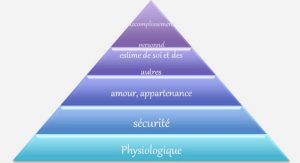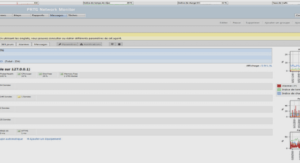The Individual and society in “Civil Disobedience”
Individual and the process of socialization
Since the first apparition of Human Being in this earth till nowadays, Man has been searching for his welfare and trying to improve his living condition. From prehistoric time until the time of Homo sapiens – or the clever man-, he had experienced progressive changes concerning his body and his way of walking first, then his skill and wit, and finally his environment. He made out his own way of living without the presence of any foreign help; he had been exposed and left to himself; doomed to survive according to his ability to adapt himself to what surrounded him; and forced to apply his wit to whatever new thing he was supposed to encounter day by day. He used to be the master of his life and ruler of his environment because there were not any other presence that can exert a force on him but himself and his animal fellows. Human being had been free at that time and his environment wider but, through improvement and advancement of his progress and his own reproduction as years went by and by, the world become populated and then started to appear many new things in the character of human being that led him on his own trap: he started to become aware of the existence of God, feelings, matters, vices, compassion; established rules for the leading of his environment; started to question his behavior towards other – moral and ethic- etc… As Man become acquainted to the existence of God due to a hard task of questioning about his own creator and that of the world where he lives and the phenomenon that animate it – weather, natural catastrophes, rains, moon and sun and stars-. That idea is consolidated by the discovery of his own limit as a Human being only and therefore a single member of what constituted the world, and confirmed by the messengers sent by God to witness his existence. And consequently, Religion started to see the light among people. Then followed other things of several nature but most of them involved his socialization like the building of communities, the apparition of ethnics and tributes, the regrouping of races according to their resemblances in language, color, belief and behavior. Afterward the separation of lands all over the world and the choice of rulers for each states or boundaries come, bringing about the birth or political and economic era. Based on words and phenomenon said above, socialization can be defined as the long process of learning values, attitudes, behaviors, religions, cultures and the characteristics of a society.
the place of the individual in society
The place of individual has always been questionable and still continues in the same process of questionability despite all progresses made by anthropologists, sociologists and philosophers who spent most of their lifetime in trying to elaborate more ideas about that matter. Individual is thought sometime to be doomed to live in an everlasting searching for his own place. In fact, we must not forget that, this searching for place does not concern partly a man’s compound or dwelling or belonging in a community or the position or rank he occupies among his people but all of them at the same time. Somehow it amounts to the question who am I? A question that involves all of the faculty of a man to think, act and judge by himself in order to find out the right answer, otherwise he will be lost in the wideness of the world where he could be used as a mere subject and would never know what his aim for coming in the world is. In a certain extent, the true answer might be a necessity for each individual, in so far as it could help him for a better expression of his levity and a further manifestation of the consciousness he is endowed with. Fulfilling those two would mean an attainment of one’s humanity since the simple fact of breathing and walking and speaking etc… do not mean being human. The body only is not necessary; the inner soul is rather needed too and is what makes us different from animals. That soul is then the characterizer of humanity and is walking under the governing of our consciousness. Since man is endowed with consciousness, he must always make a use of it in whatever he is appealed to encounter throughout his life. Else, he will be exposed to the risk of being under the direction of other handy users of theirs. This is what Thoreau suggested most for an individual. According to him, man should always think and act consciously rather than being a mere animator of the society he is living in or a single follower of what is already established by others he thinks superior to him if not perfect. Thoreau sees a lack of usage of one’s conscience as a mistrust of oneself and a willingness to accept one’s inferiority or more, a subject in spite of man: “I think that we should be man first and subjects afterwards” 9 . The author had trouble to agree with the fact of being governed, let alone letting legislators make choices for citizen because, a man is supposed to know what is that suit him much before any other one. Then he wondered further “why has every man a conscience then?”10, since people trust other to rule them. Society, by any mean, should not prevail over individual consciousness for, society is not a single body but a union of many and therefore it must be aware of the fact that, every participator has his own point of view about matters which would not necessarily match others’. Society has a tendency to organize how people among it should behave and take it for the right way it should be for each and every man, forgetful about the consciousness of that latter. One of the characteristics of the organization is what we called civilization through which, Mark twain showed one of the first fault of society consisted of imposing itself upon each individual. He, himself, wonders about the presence of the conscience of a man in the way society behaves. In the opening of his book, he mainly depicted the standard by which, a single majority of people take their way to behave as fit for everybody, then he explained through the character of Huck Finn, how the need, for an individual, to know that he is acting according to his comfort is important for him and how it would release him: The Widow Douglas she took me for her son, and allowed she would civilize me; but it was rough living in the house all the time, considering how dismal regular and decent the widow was in all her ways; and so when I couldn’t stand it no longer I lit out. I got to my old rags and my sugar-hogshead again, and was free and satisfied.”11 Huck Finn, the poor little child of the drunkard of the country, represents the traits of poverty and lacks of education and therefore, one who is most in the need of civilization. But unfortunately, though he recognizes the importance of it, he could not bear it, we saw him preferring his old dirty clothes to the standard ones the widow has chosen for him. He expresses his sense of freedom through this action, showing that the ease of a man is better than being in the outlook concordance expected by society. His willing to be free from social conventions, embodies the fairest use of his own conscience though he is a mere ignorant supposed to learn from adults around him.
INTRODUCTION |



